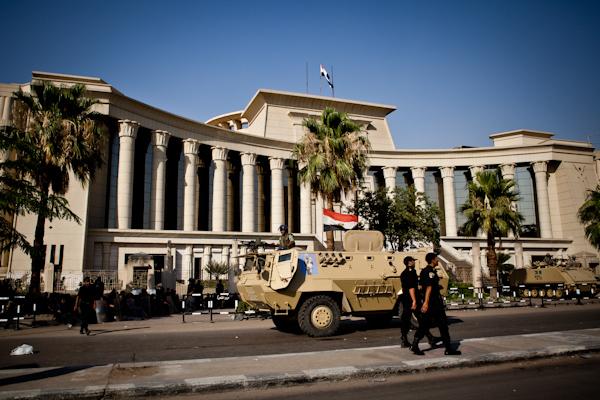 The Supreme Constitutional Court sent the Shura Council its comments on the council’s amendments to the electoral law on Monday, putting the legislative authority in yet another predicament, as it would need to amend the law before President Mohamed Morsy’s expected call for the next parliamentary elections next week.
The Supreme Constitutional Court sent the Shura Council its comments on the council’s amendments to the electoral law on Monday, putting the legislative authority in yet another predicament, as it would need to amend the law before President Mohamed Morsy’s expected call for the next parliamentary elections next week.
According to the new Constitution, adopted on 25 December, the president is to call for the parliamentary elections within 60 days from approval of the Constitution.
In a first reaction, Shura Council member and legal expert Gamal Gibril said there is no problem if elections are not called for in 60 days, saying the period is merely procedural and has no legal ramifications.
“Amending the law again would take time, especially the redistribution of the electoral constituencies,” Gibril said.
The court remarked that the law describes a worker as he who depends mainly on income from his manual or mental work in agriculture, industry or services, which violates the Constitution, as it excludes those with another source of income or that work in fields other than those mentioned in the law.
The law removes membership from members of the House of Representatives if they change the classification under which they ran in the elections, be it farmers or workers. The court said this provision should be applied to all other changes of classification, such as from independent to partisan, or vice versa.
The court also requested that electoral constituencies be proportionately redistributed in accordance with population density, as per article 113 of the Constitution, so as to ensure fair representation in Parliament. It also said that districts should not be distributed in an arbitrary manner without taking public interest into account.
The issue of redistributing electoral constituencies drew wide controversy during the national dialogue, which concluded its discussions last month and sent the bill to Shura Council without essential changes.
The Supreme Constitutional Court further requested that the conditions for membership of the House of Representatives be in accordance with the Constitution. The Constitution stipulates that members must fully enjoy their civil and political rights, which means they must not have been convicted of any crime depriving them of their political rights.
A political isolation clause in the Constitution bans members of the dissolved National Democratic Party who have at the same time been members of the People's Assembly or Shura Council from exercising politics or running in presidential or parliamentary elections for ten years. The court said those who are to be banned must have been members in both sessions consecutively and not only in either one, as stipulated by the Constitution.
The court finally said the voting and counting processes for Egyptians abroad must be assigned to members of the judiciary, as stated in the Constitution.



